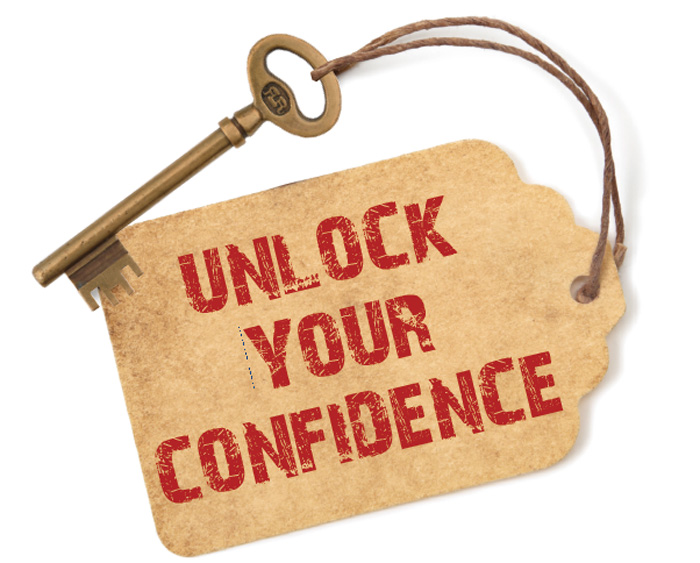5 Big Steps Towards Assertiveness
Assertiveness does not mean saying "No!" all the time. It's also not the same thing as being aggressive. Assertiveness really has to do with staying true to your best You!
That means being respectful of your time, priorities, beliefs, and values through your thoughts and actions. Stress can pile on quickly when you try to keep everyone happy and squeeze as much as possible into your schedule. As the airlines say, "Put your own oxygen mask on before assisting someone else."
Confidence is a stress relief tool in that, when practiced, it can help take the pressure off of trying to do everything and please everyone.
Assertiveness Step 1:
Say "No!"
This is one of the most difficult things to do, especially if you are a shy person or a people pleaser. We fear hurting anyone's feelings. However, it is possible to say "No" without being confrontational. If you are used to saying "Yes" to everyone and agree to do things you really don't want to do, you'll end up feeling burnt out and resentful. It's not worth putting such stressful pressure on your emotional and physical health.
Here are some examples for assertive ways of saying "No":
- "I'm sorry, but I won't be able to help out his time. My schedule is just filled up."
- "I know I've been attending the meeting each time, but I'm going to have to miss some due to other commitments."
- "I wish I could lend you the money you asked for, but my budget is very limited."
Assertiveness Step 2:
Ask for What You Want
It can be easy to think that our friends, family, and co-workers should know what we want and need. But, no one is a mind reader. Most people will not pick up on your subtle hints that you want something. You have to put your wants and needs out there in the open. Even if asking doesn't get you what you're looking for, you'll feel better for asking anyway. Being assertive by asking for what you want bolsters self-confidence and self-esteem. If one avenue says "No", you'll be more likely to try another because of the confidence boost. Again, asking for what you want does not mean an aggressive exchange. It should be a positive experience. "Ask and you shall receive" or at lest you'll feel better because you asked. If you ask your supervisor for a promotion but no positions are available, at least your boss is now aware that growth is something you're interested in. So, when a position becomes available in the future, your boss will have you in mind.
Here are some examples for asking for what you want:
- "I appreciate your support. I'm just not good company right now and could use some time alone."
- "I've been working very hard lately. I would like some time off to recharge so I can keep bringing my best efforts to work."
Assertiveness Step 3:
Put Your Own Needs First
For most people, "Putting your own needs first" can sound like a selfish belief that should not be ascribed to. But, unless you look after your own well-being (including your own stress relief) first, you will not be at your best for friends, family or work. Looking after your needs is an act of caring for yourself and others. The question then is, "What are my needs?" Setting priorities is essential. Again, time for self-reflection is required to figure this out.
Assertiveness Step 4:
Realize You Don't Have to Be Perfect
Most people who experience stress on a regular basis tend to be perfectionistic in their expectations for goal outcomes. Stress comes easily if you're worried that the job interview will be a failure or that the party will have snags. Job interviews are nerve-wracking by nature and something always goes a little awry with a party. Nothing is "perfect." Having a realistic margin for error will ease the pressure. Take comfort in past experiences you might have had when things were less than "perfect."
- "Even though the job interview didn't lead to a job, no one laughed me out of the room. Other employers have called for interviews."
- "Even though the hired magician arrived late to my daughter's birthday party, the kids kept playing and had a great time."
Assertiveness Step 5:
Stop Being So Nice
If you describe yourself as a "people pleaser," "agreeable," or "non-confrontational," you may be quite stress-prone because you try so hard to remain agreeable and not "rock the boat." There is a lot of pressure that comes from keeping feelings and thoughts bottled up. When you brush your own needs aside to avoid an awkward or upsetting situation, it can lead to your harboring resentment. If you want to be a nice person, be nice to yourself first. Stand up for yourself! You deserve it!


